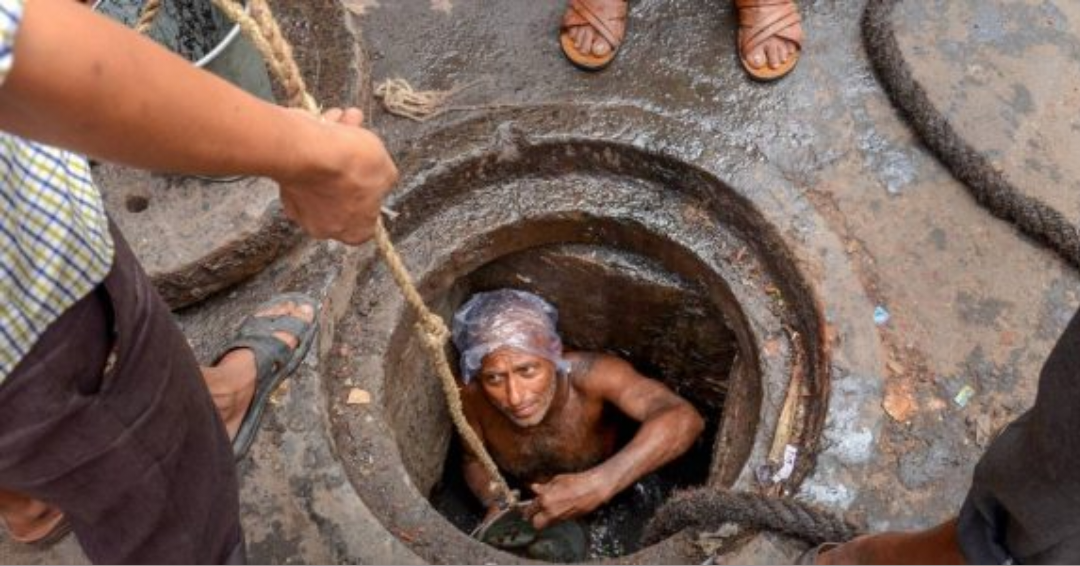
In a landmark decision, the Supreme Court made a significant statement on the plight of manual scavengers, emphasizing their enduring bondage in deplorable conditions. The court urged both the central and state governments to commit to the complete eradication of manual scavenging across the nation. As part of its directives to improve the lives of manual scavengers, the court ordered that the next of kin of those who tragically lose their lives while cleaning sewers be compensated with a sum of Rs 30 lakh.
Quoting the words of B R Ambedkar, Justice S Ravindra Bhat underscored the importance of this battle, stating, “Ours is a battle not for wealth or power. It is a battle for freedom. It is a battle for reclamation of human personality.” The court further addressed the issue of compensation by setting a minimum of Rs 20 lakh for individuals who suffer permanent disabilities while engaged in sewer cleaning, and up to Rs 10 lakh for other injuries.
The Supreme Court firmly conveyed that the Union and state governments hold the responsibility of ensuring the complete eradication of manual scavenging. To this end, the court issued 14 directives for the effective implementation of the Prohibition of Employment as Manual Scavengers and their Rehabilitation Act, 2013. Justice Bhat stressed the importance of measures for the rehabilitation of victims and their families, including scholarships and skill development training.
The decision highlighted the constitutional commitment to equality and emphasized the values of dignity and fraternity. Justice Bhat underscored that these values are essential for a truly democratic society and called upon all citizens to work towards dispelling the darkness that has plagued generations of manual scavengers. The court also emphasized the need for government agencies to coordinate efforts to prevent such incidents and allowed high courts to monitor cases related to sewer deaths.
This crucial judgment was not just a legal decision but a call for social change. It exposed the harsh reality of manual scavengers and urged the nation to strive for their emancipation. The Supreme Court will continue to monitor progress in this regard, with the next hearing scheduled for February 1, 2024.
Disturbing government data revealed that 347 individuals lost their lives while cleaning sewers and septic tanks in India over the past five years. Uttar Pradesh, Tamil Nadu, and Delhi accounted for 40% of these tragic deaths, as reported in government data presented to the Lok Sabha in July 2022.

Post Your Comments